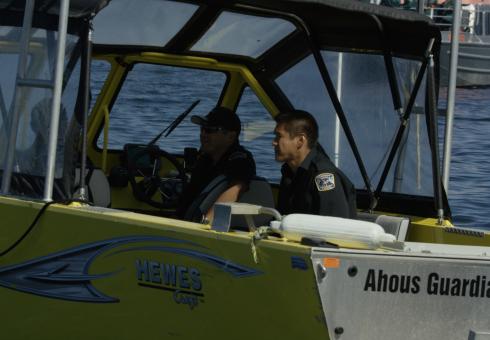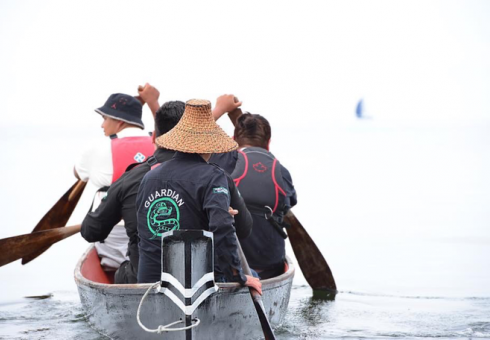Funding from Your Nation or Organization
Funding for guardian programs can sometimes be found from internal Indigenous government sources such as revenue sharing agreements, resource fees, business income, dedicated trusts, impact-benefit agreements, etc. Internal support may also come in the form of “in-kind support” or the gift of goods and services such as office space, shared equipment, shared staff positions, or fundraising, communications or admin support. These kinds of contributions can significantly reduce the costs of your program. They may also be very valuable when seeking funding from sources that require you to demonstrate matching contributions. The more aligned and integrated your Indigenous Guardian program is with the vision and strategic priorities of your Nation or organization, the more likely it is you will be able to secure this kind of funding and in-kind support.
Funding from Federal, Provincial or Territorial Governments
Many programs are funded in part by federal, provincial or territorial agency program grants or agreements (i.e. Fisheries, Parks, Species-at-Risk), employment and training programs, or fee-for-service contracts (i.e. park management). Often a reliable funding source from one year to the next, this kind of funding can support key staff positions and program costs. If you decide to pursue government funding to support your program, consider coordinating your ask with other programs or departments to avoid competing internally for the same funds. You may also want to look at developing a joint proposal with neighbouring communities or organizations to have more impact and reduce the competition for funds regionally.
Industry or Resource Users
Some communities have successfully supported their guardian programs through industry contribution agreements, referral fees, user fees, licensing fees, or contracts for services related to monitoring development projects. Building formal relationships with industry and recreational users of your lands and waters can help you create opportunities for developing this kind of funding. For an example, see the story about how the Kitasoo Xai'Xais and the Ahousat First Nations are funding their Guardian programs through visitor fees.
Funding from Foundations and Private Donors
There are many private and public foundations, charitable organizations, and private donors whose priorities align with guardian program activities. To apply for charitable dollars directly, recipients must be recognized as a qualified donee under the Income Tax Act of Canada. Qualified donees can be a registered First Nation governing entity (i.e. First Nation Band) or a registered charitable organization recognized by the Canadian Revenue Agency. However, not all First Nation Bands and non-profit organizations are structured as registered entities. Understanding the opportunities and limitations of charitable funding is an important consideration when determining how to structure your program. Organizations like Tides Canada can act as an “intermediary” organization, receiving and managing funds on behalf of unregistered organizations. Keep in mind, however, that the Income Tax Act has strict policies on the activities allowed with charitable funds, in particular with respect to lobbying and advocacy work.
Contributions from Partners
Partner organizations like universities, research institutes and non-profit organizations wanting to do work or research on your lands and waters can become important allies to your stewardship goals. Take a proactive approach to working with these institutions and organizations to ensure you shape and benefit from the work they want to undertake. Developing protocol agreements, research standards, data sharing agreements, mentorship and hiring clauses can help formalize expectations. See more discussion and ideas under the Conduct Research chapter.
Contributions from Your Community
Don’t overlook the importance of community members in supporting your Indigenous Guardian program. Active land users, harvesters, traditional knowledge holders, and companies with operations out on the land and water may contribute significantly to your guardian efforts. Their insights and observations can be a powerful source of information. Developing ways for these users to systematically gather, document, and report information can allow you to harness this information at relatively low cost to your program. See the Monitor and Collect Data chapter for more detailed information.

